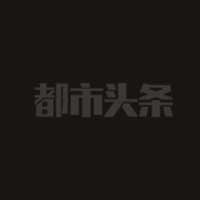
第六十七章
天下皆谓我道大,似不肖。夫唯大,故似不肖。若肖,久矣其细也夫!我有三宝,持而保之:一曰慈;二曰俭;三曰不敢为天下先。慈,故能勇;俭,故能广;不敢为天下先,故能成器长。今舍其慈,且勇;舍其俭,且广;舍其后,且先,死矣。夫慈,以战则胜,以守则固。天将救之,以慈卫之。
Chapter 67
My Tao is often perceived as too broad, and resembles nothing. But It shouldn't resemble anything simply due to its broadness. If it does, Tao would be too tedious and therefore meaningless. I've got Three Principles to uphold it: the first is kindness; the second is thrift; the third is never to step ahead of others. Kindness leads to bravery, thrift leads generosity, modesty leads to leadership. Simply brave without kindness, generous without thrift or leading without modesty, one would end up in a dead end. With kindness, one would be able to triumph in fighting, solidify in defending. Then heaven will be on his side and protect him with benevolence.


第六十八章
善为士者不武,善战者不怒,善胜敌者不兴,善用人者为之下。是谓不争之德,是谓用人之力。是谓配天古之极。
Chapter 68
A good general doesn't use arms lightly, a skilled fighter doesn't get angry easily, a gracious winner doesn't become arrogant needlessly, a modest person is more able to motivate others. This is called virtue of no fight, which leverages on other's capabilities, and is consistent with the Tao.
第六十九章
用兵有言:吾不敢为主而为客,不敢进寸而退尺。是谓行无行,攘无臂,执无兵,乃无敌。祸莫大于轻敌,轻敌几丧吾宝。故抗兵相加,哀者胜矣。
Chapter 69
A general would say: I dare not to start an aggressive offense, but rather choose to defend, and dare not to move forward even an inch, but rather retreat for a foot. In other words, army is lined up as if no orderly pattern, arms hurl as if no arms at all, facing enemies as if no enemies in the front, holding weapons as if no weapons in hands. No disaster is greater than underestimating the enemies. If so, Three Principles would be lost. Hence, in close confrontations with matched strengths, the benevolent side always wins.
